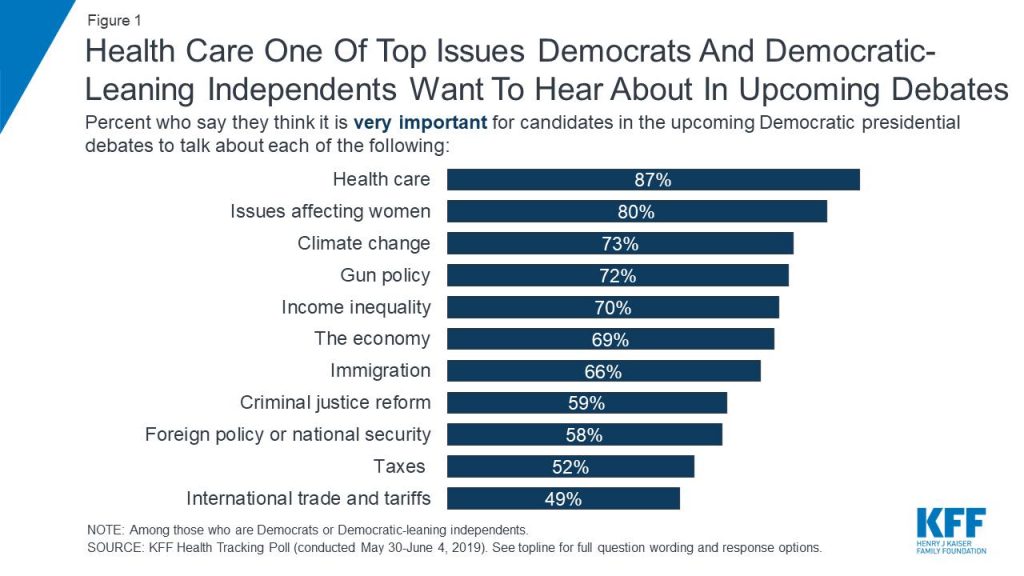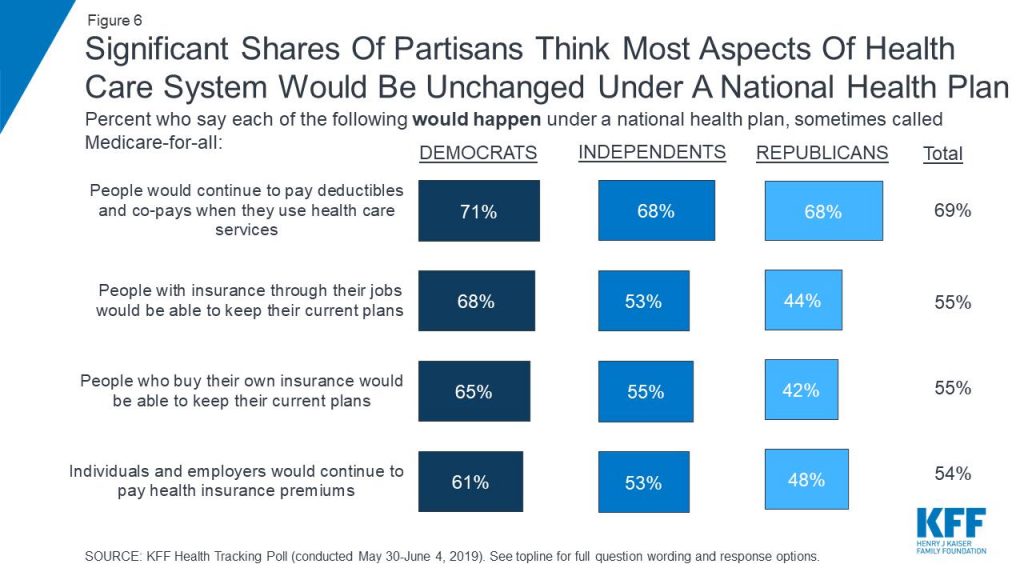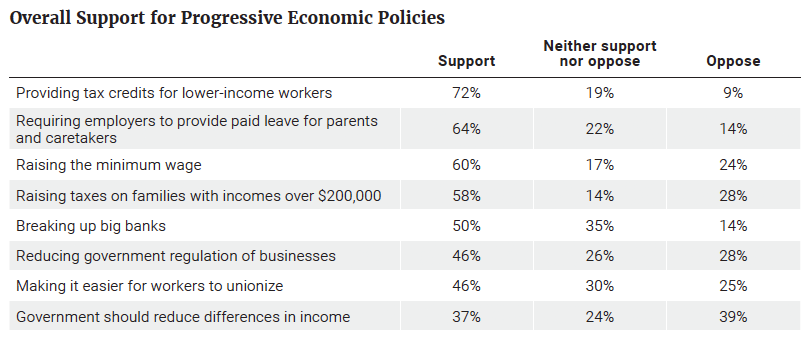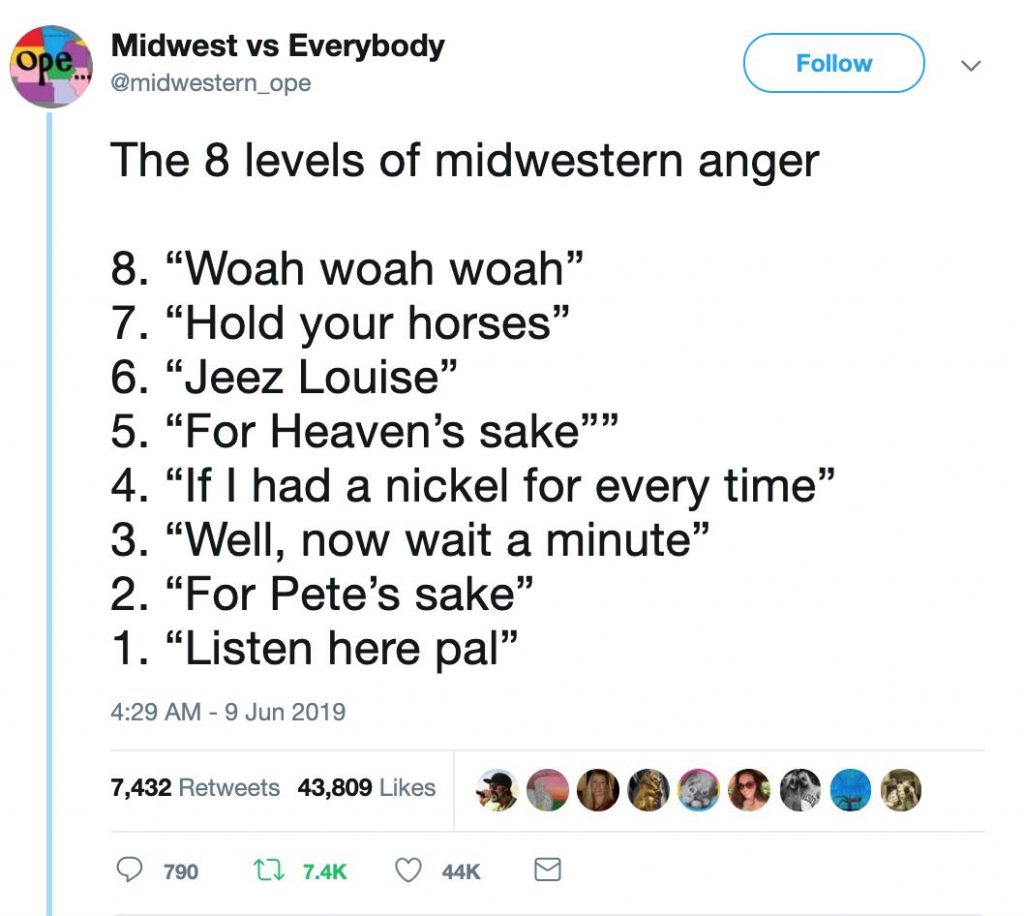VOX A new study finds evidence that Trump’s appeal is different than the appeal of both the Republican and Democratic parties: “Support for Trump is characterized more by out-group hatred than by in-group affection… Trump approval is best explained by a disdain for the Democratic groups he so often attacks.” Approval of the Republican and Democratic parties, on the other hand, is based on affection towards those who vote Republican and Democratic, respectively. In other words, the special sauce of Trump’s appeal to members of his base is that he hates the same people they do.
The study also finds that “partisan identities are now matched up with ideological, religious, racial, and other cultural and geographical identities. This increasing alignment between our partisan and other identities pushes us toward intolerance of out-groups. This is particularly true among the Republican Party, which is made up mostly of voters with fewer, and better-aligned religious and racial identities.”
This is a vicious cycle: “As voters’ racial and religious identities align with their party, their partisan identity strengthens. For Republicans, this means that the closer they feel to fellow whites and Christians, the closer they feel toward the Republican Party: an ideal recipe for intolerance of ‘the other.'”
¤
KAISER FAMILY FOUNDATION A new report shows that healthcare leads the list of topics Democrats and Democratic-leaning independents want to hear 2020 Democratic presidential candidates talk about during this week’s debates. Nearly nine in ten (87%) say it’s very important for candidates to talk about healthcare. Eight in ten say it is very important for candidates to discuss issues affecting women.

Most voters are unaware, however, of how much change the Medicare-for-All bills introduced by Sen. Bernie Sanders and Rep. Pramila Jayapal would bring. Majorities say people would continue to pay deductibles and co-pays (69%) and continue to pay premiums (54%) under a Medicare-for-All plan. Majorities also say those with employer-sponsored or self-purchased insurance would be able to keep their plans (55% each) under a Medicare-for-All plan. None of these beliefs are correct.

¤
DEMOCRACY FUND A large-scale voter survey shows progressive policies are widely popular. For instance, 60% support raising the minimum wage, and only 24% oppose it. But while Democratic voters are relatively unified in support of progressive economic policies and in their explanations of inequality, Republicans are divided. Lower-income Republicans are substantially more economically progressive than higher-income Republicans. About one in five Republicans hold economic views more in line with the Democratic Party than their own party. But that doesn’t mean they’ll vote Democratic. See above on the source of Trump’s popularity with many of these voters: he hates what they hate, and they vote their hatred, not their policy preferences or economic self-interest.

¤
Speaking of the minimum wage…
THE WASHINGTON POST America has never gone this long without hiking the federal minimum wage. In July 2009, almost 10 years ago, the federal minimum wage rose from $6.55 an hour to $7.25 an hour. Congress has not approved any hikes since then, with Republicans blocking Democratic efforts to raise it. Twenty-nine states have passed state minimum wages higher than the federal baseline. In the other 21 the federal minimum is the last word. Republican-controlled states are less likely to have passed minimum wage hikes, although voters in conservative-led states such as Arkansas have approved higher minimum wages through ballot initiatives.
¤
NEW STATESMAN Why political journalism keeps getting it wrong. This excellent piece from across the pond focuses mostly on the United Kingdom but is just as applicable to the US political journalists, who, the author writes, “are prone to panic about not representing ‘real people’. But who gets depicted as the authentic voice of unheard Britain is governed by implicit assumptions that are grim when exposed to the light. Why are the views of a retired steelworker in Grimsby about ‘where the country has gone wrong’ more important than those of a second-generation Nigerian-British nurse in Plaistow? Citizenship is supposed to transcend personal identity, and yet we still indulge an idea of the ‘volk.’ This tendency applies equally in America, where retired steelworkers in Pennsylvania were held up as the Great Unheard, but the same epithet was not bestowed on black voters in Detroit.”
¤
THE WASHINGTON POST We need to prepare for a complete reversal of the role the Supreme Court plays in our lives, writes Ron Klain: “All but the oldest Americans have lived their entire adult lives under a Supreme Court associated with progressive social change… We need to prepare for a complete reversal of the role the court plays in our public life. That change could be dramatic, its impact sweeping and — perhaps most surprisingly for those who believe change at the Supreme Court is always slow — it could come head-spinningly fast.”
¤
HUFFPOST Democrats in Maine have found a formidable candidate to take on Sen. Susan Collins in her re-election bid next year: Susan Sara Gideon, Maine’s Democratic House Speaker. Collins faces intense backlash from state Democrats and abortion rights activists over her vote for Brett Kavanaugh and her alleged belief that he is not a threat to Roe v. Wade.
¤
THE NEW YORK TIMES Teenage dramas have typically presented a soapy view of high school, write Margot Sanger-Katz and Aaron E. Carroll, with more sex, drugs, and wild behavior than in real life. But HBO’s new series “Euphoria” suggests that “our modern society, with its smartphone dating apps, internet pornography and designer drugs, has made teenage life more extreme and dangerous than ever before. Actually, nearly the opposite is true.”
Today’s teenagers drink less, smoke less, and use fewer hard drugs than their parents did. They get in fewer car accidents and physical fights. They commit fewer crimes, and are less likely to drop out of high school, have sex, and to become pregnant.
Teenagers today do face some increased risks. Teenage suicide is rising, as are certain mental health diagnoses. Vaping has exploded so fast public health officials are alarmed. And though fewer kids use drugs, overdose deaths are rising as certain drugs become more dangerous. But over all, the authors conclude, “adolescence is safer than it’s ever been.”
¤
TWEET OF THE WEEK:

Follow Steve Lichtman during the week on Twitter @stevel3000.
Cover photo credit: Gage Skidmore, CC BY-SA 2.0


